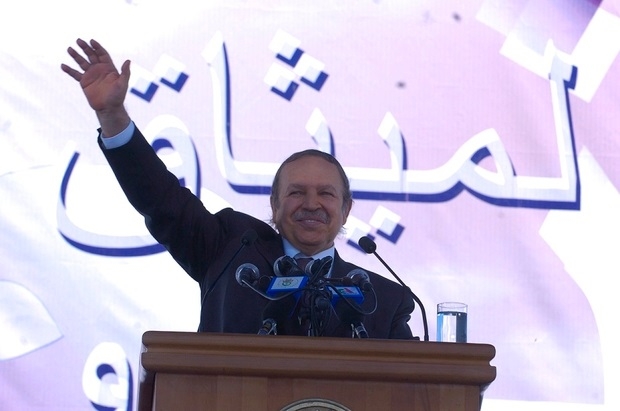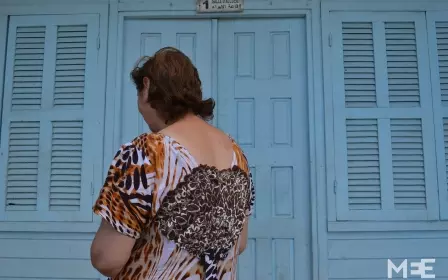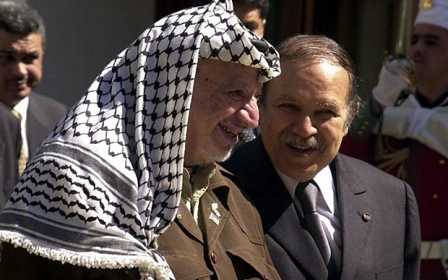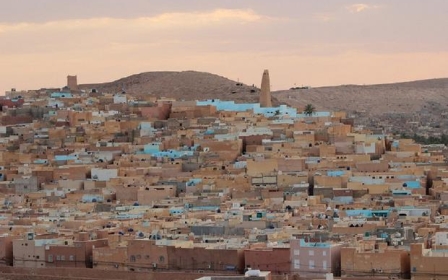Is impunity the cost of peace in Algeria?

ALGIERS – “This gives me the opportunity to reiterate the call of the merciful homeland to the sinners who would like to rethink and abandon the path of crime,” said Algerian President Abdelaziz Bouteflika of the 10th anniversary of the Charter for Peace and National Reconciliation. The charter has been Bouteflika's project since he came to power in 1999, and its anniversary merited a personal message from the Algerian president. Last Monday, 28 September, APS, Algeria's official news agency, published a long letter by the ailing president to mark the occasion, and celebrate “the renewed peace”.
Adopted by a referendum on 29 September 2005, this charter - after 10 years of civil war during which NGOs estimate the number of victims at approximately 200,000 dead - was to crown a process of reconciliation through various measures. These included extending the suspension of legal actions against armed fighters and providing support to their families in exchange for their surrender, offering compensation to families of missing persons and offering judicial immunity to state officials who were involved in counterterrorism and were suspected by NGOs of committing human rights violations (torture, forced disappearance and extrajudicial execution).
Ten years later, the presidential team’s close associates, for whom the head of state “will go down in history as the architect of peace,” are more convinced than ever of the need for such policies.
“It was only then that I understood Albert Camus’s words on Algeria, which had made me scream out of rage: ‘I prefer my mother to justice,’” an adviser to Bouteflika told Middle East Eye.
“I think that sometimes we better avoid going through trials that result in severe consequences and choose forgiveness in order to appease people’s minds, to reconcile a torn society. This path was inevitable. How could you extinguish the fire without a courageous act, certainly subject to controversy, but necessary: forgiving, moving on?”
A DRS (intelligence services) officer, who is still on duty, highlighted for MEE what “the reality was on the ground”:
“The army and the secret services, on the frontline in this war, quickly realised that the conflict could not be settled militarily. By 1994, DRS established contacts with armed fighters willing to negotiate their surrender,” he told MEE.
The retired general Mohamed Uday, one of the military leaders of the war against armed groups that took place in the centre of the country from 1994 to 1996, recalled that as early as 1994, "helicopters dropped leaflets calling on terrorists to surrender with guarantees”. According to official figures, which only cover the period between 2006 and 2015, 15,000 armed Islamists have been “integrated in society,” while 17,000 were “eliminated” between 2006 and 2012.
Hardline networks
For many soldiers, “the benefits of the charter are still perceivable today”.
“Thanks to the impressive number of armed fighters exiled abroad, from London to Damascus, from Mali to Pakistan, and who wished to surrender to benefit from the suspension of legal actions in Algeria, the DRS was able to build an impressive database on armed group networks, which we shared with several intelligence services around the world over the past decade,” a DRS officer told MEE.
“While at the beginning, the text was to be limited in time [with six months given to surrender], the charter is still effective. Terrorists continue to surrender. It works.”
It works. “Yes, but at what price?” asked Nassera Dutour. The president of the association SOS Disparu(e)s (SOS Disappeared) has never found her son who was abducted by soldiers in the mid-90s at the age of 21.
“You simply cannot forgive a criminal who has killed and slaughtered," Dutour said. "With this type of legislation, one can say: ‘Tomorrow I can start over, then I will be forgiven.’ Reconciliation is a road we must walk together, not something that is imposed from above."
Since the announcement of the draft charter in August 2005, human rights activists, families of victims of violence and relatives of disappeared people immediately denounced what they called a “denial of truth and justice,” a “blackmail by money to silence requests for investigation”.
While the editorial of the French-language daily El Watan the morning following the president’s speech posed the question on whether or not the authorities intended to “turn a blind eye to each other’s crimes provided that the maquis are emptied,” NGOs representing different categories of victims - lost for years in petty quarrels - have united to denounce the Charter.
SOS Disparu(e)s, Somoud (families of people kidnapped by armed groups) and the National Association of Families of the Disappeared (ANFD) have campaigned against this text which, for them, “consolidates impunity and denial of justice and truth for the benefit of terrorists and state officials involved in counterterrorism”.
Normalised violence
At the time of assessment, Mouloud Boumghar, co-author of the Charter for Truth, Peace and Justice - an alternative text drafted by NGOs in 2010 - said that “if the level of violence has fallen through the military fight against terrorism, fundamentalism is far from being defeated since the ideological struggle has never been undertaken by the regime, which has made compromises with the Islamists”.
The lawyer added that there would also be “much to say” on the human rights issue. "Amnesties enacted since 2000 demoralise counterterrorism agents on one side, and on the other ... reduce the temptation for those who want to take up arms. We should first establish the legal and political truth related to the crisis that led to the massive wave of violence in the 90s in order to really understand what happened.”
This is also what is being demanded by the main opposition party, the Socialist Forces Front. On Tuesday 29 September, the party’s first secretary Mohamed Nebbou recalled that “a genuine national reconciliation” could not be “instituted” nor accomplished “without justice and truth, without building an open political system, a genuine political democracy and an independent judiciary, or without establishing strong legitimate and credible institutions”.
Aliouat Lahlou, leader of the former communal guards involved in the fight against armed groups, spoke to MEE in Bouira, 100 km south of Algiers. He considered this equal treatment between perpetrators and victims as the seeds of “normalised violence”.
“Check out the skyrocketing crime figures - the average age of criminals is increasingly younger in our cities,” he said. “A new terrorism takes root with these young thugs who know that the law has already pardoned worse [crimes]. The result is that they take neither the law nor the sanctions seriously. We live in a great climate of impunity.”
Eric Goldstein, head of Human Rights Watch for the Middle East and North Africa region, predicted during an encounter a few days after the announcement of the draft Charter in 2005 that: “The truth and justice issues will rebound, as has been the case in Latin America. It is natural that many people prefer, in the short term, to turn the page of a very painful period and make up for lost time. But the facts and realities that have fuelled the 90s’ terrible violence will always remain relevant."
This article was translated by Ali Saad and originally published on Middle East Eye’s French page on 1 October 2015
New MEE newsletter: Jerusalem Dispatch
Sign up to get the latest insights and analysis on Israel-Palestine, alongside Turkey Unpacked and other MEE newsletters
Middle East Eye delivers independent and unrivalled coverage and analysis of the Middle East, North Africa and beyond. To learn more about republishing this content and the associated fees, please fill out this form. More about MEE can be found here.




